| | White House plans to cut 10% of US flights as shutdown continues, Mexico’s Sheinbaum is assaulted on͏ ͏ ͏ ͏ ͏ ͏ |
| |   Mexico City Mexico City |   Dar es Salaam Dar es Salaam |   Moscow Moscow |
 | Flagship |  |
| |
|
The World Today | 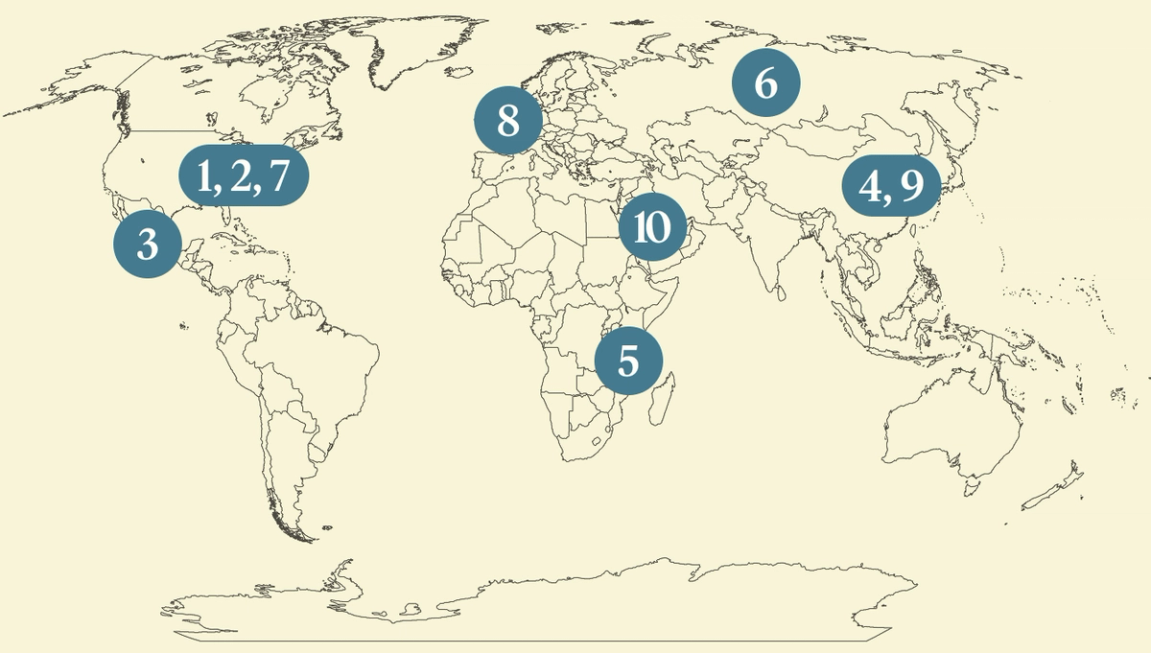 - US cuts flights in shutdown
- Republican dissent grows
- Sheinbaum assaulted
- China’s gender violence
- Tanzania’s election disputed
- Putin warns of nuclear tests
- US Army nuclear reactors
- Eurostar monopoly may end
- Flying taxi progress
- Saudi’s NEOM impossibility
 Turning Tokyo into a living art gallery. |
|
US cuts flights as shutdown drags |
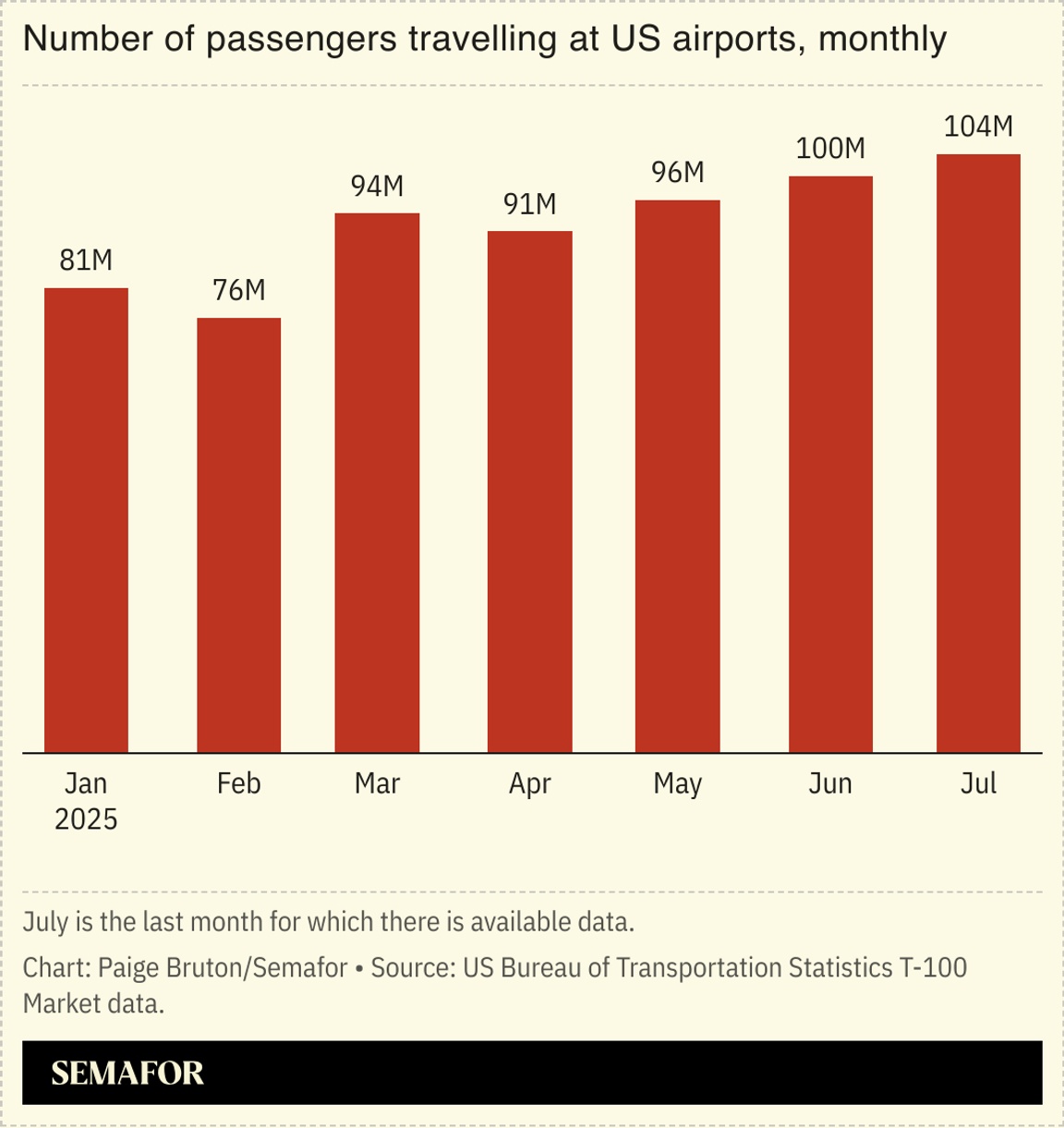 The White House plans to cut 10% of flights at 40 of the busiest US airports as the longest government shutdown in history continues. The transportation secretary said the move would “alleviate the pressure” on unpaid air traffic controllers, but will mean thousands of canceled flights in the year’s busiest travel season. The shutdown is hitting Americans’ wallets, with millions of lower earners’ food stamps cut or delayed, and campaigners warning of widespread food insecurity. The shutdown may continue into the new year: Even if Congress agreed to a continuing resolution, it would only be valid until Nov. 21, leading to a new crisis, an academic wrote in The Hill. |
|
US Republicans look inward |
 Jonathan Drake/Reuters Jonathan Drake/ReutersUS Republicans, reeling from devastating election losses, are facing questions about how to course-correct with President Donald Trump battered by low approval ratings and internal dissent. The party struggles to motivate MAGA voters when Trump is not on the ballot, a critical issue in his final term, the Washington Post reported. Strategists are divided on whether Trump should get more involved to fire up the base, or whether congressional Republicans should distance themselves from Trump’s increasingly unpopular tariffs. The party is also split over Trump’s approach to the shutdown, Semafor’s politics team wrote: he has suggested bypassing the Democrats altogether to reopen the government, undermining fragile bipartisan talks. Others already show signs of breaking with Trump, including arch-loyalist Marjorie Taylor Greene. |
|
Mexican president groped in public |
 Henry Romero/Reuters Henry Romero/ReutersMexican President Claudia Sheinbaum will press charges against a man who groped her in public, in a brazen display that experts say underscores the country’s rampant misogyny. The man was seen placing his hands on her body and attempting to kiss her as she spoke to supporters in Mexico City. “A line must be drawn,” Sheinbaum said, because “what will happen to other Mexican women?” The UN rates Mexico among the world’s most dangerous countries for women, which commentators link to an embedded culture of machismo, and Sheinbaum made ending violence against women a cornerstone of her presidential campaign. She said harassment like she experienced is not a crime under federal law or in some states, which she vowed to change. |
|
Outrage in China over domestic abuse |
 Tingshu Wang/Reuters Tingshu Wang/ReutersA series of high-profile domestic abuse cases in China has sparked outrage, and exposed Beijing’s sseeeemingly contradictory attitude toward violence against women. The New York Times reported that several women repeatedly reached out to police, including one who later died after being beaten by her husband. Authorities have been accused of treating domestic violence “as a private family matter,” the Times reported, even after leader Xi Jinping called for a zero-tolerance approach. Xi’s words contrast with his emphasis on traditional gender roles, which has created a reluctance among officials to break families apart. While the law in theory protects women, it clashes with Beijing’s attempts to raise the birth rate, and police “emphasize staying in the marriage,” one academic said. |
|
AU condemns Tanzania vote |
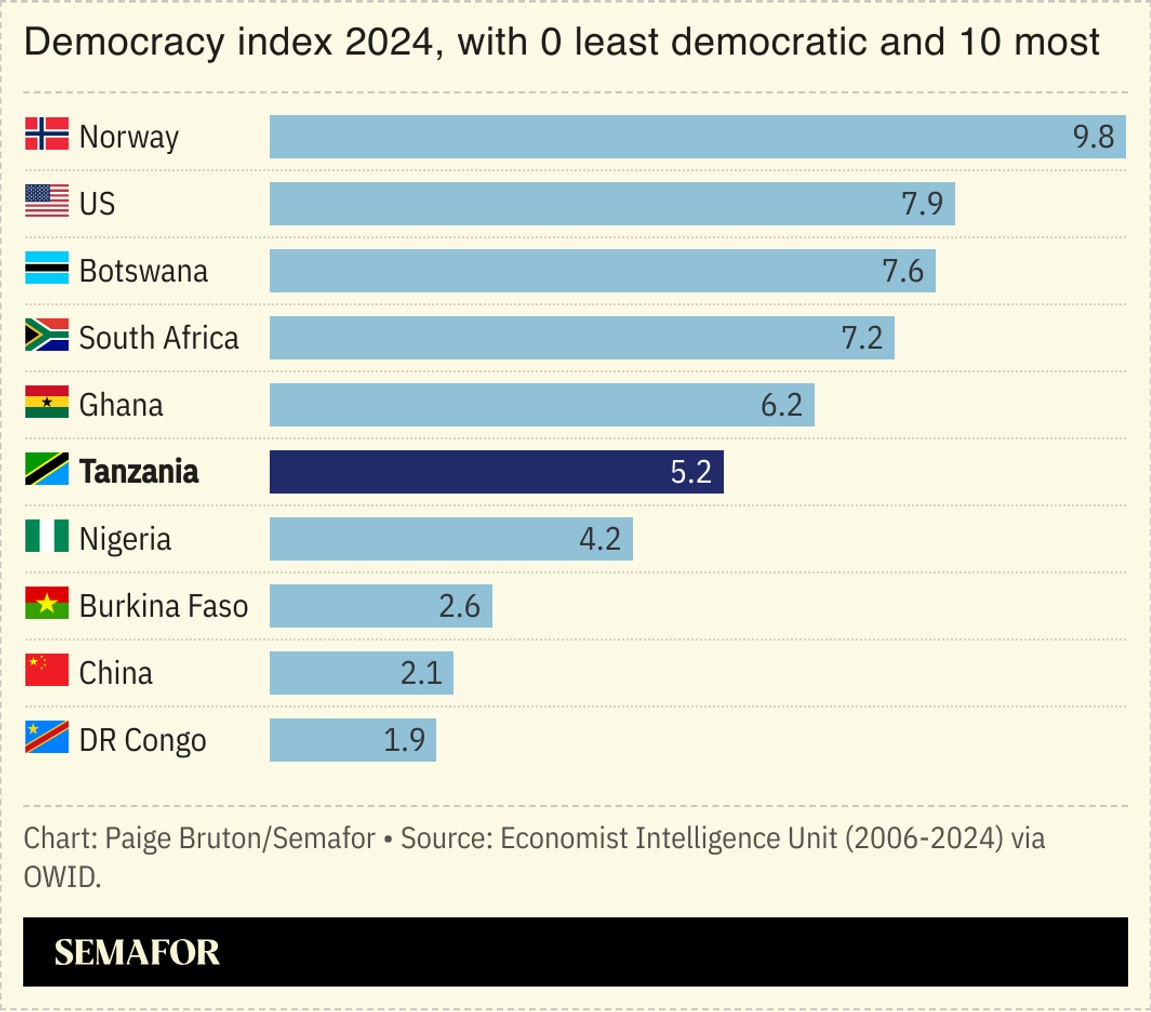 The Tanzanian presidential election failed to comply with democratic standards, according to African Union monitors. President Samia Suluhu Hassan was reelected last month, but the vote was marred by violence — widespread protests were met with bloody crackdowns, reportedly killing 800, although the government disputed the figure. AU observers said they witnessed ballot stuffing, a government-imposed internet blackout, and violence and abductions by government forces. The Southern African Development Community similarly criticized government “intimidation” of opposition figures: One senior opposition leader is facing terrorism charges. Sub-Saharan Africa has seen a sweeping democratic retreat in recent years, with repeated military coups, especially in the Sahel region, and popular support for democratic rule is on the decline, according to the Brookings Institution. |
|
Russia threatens nuclear tests |
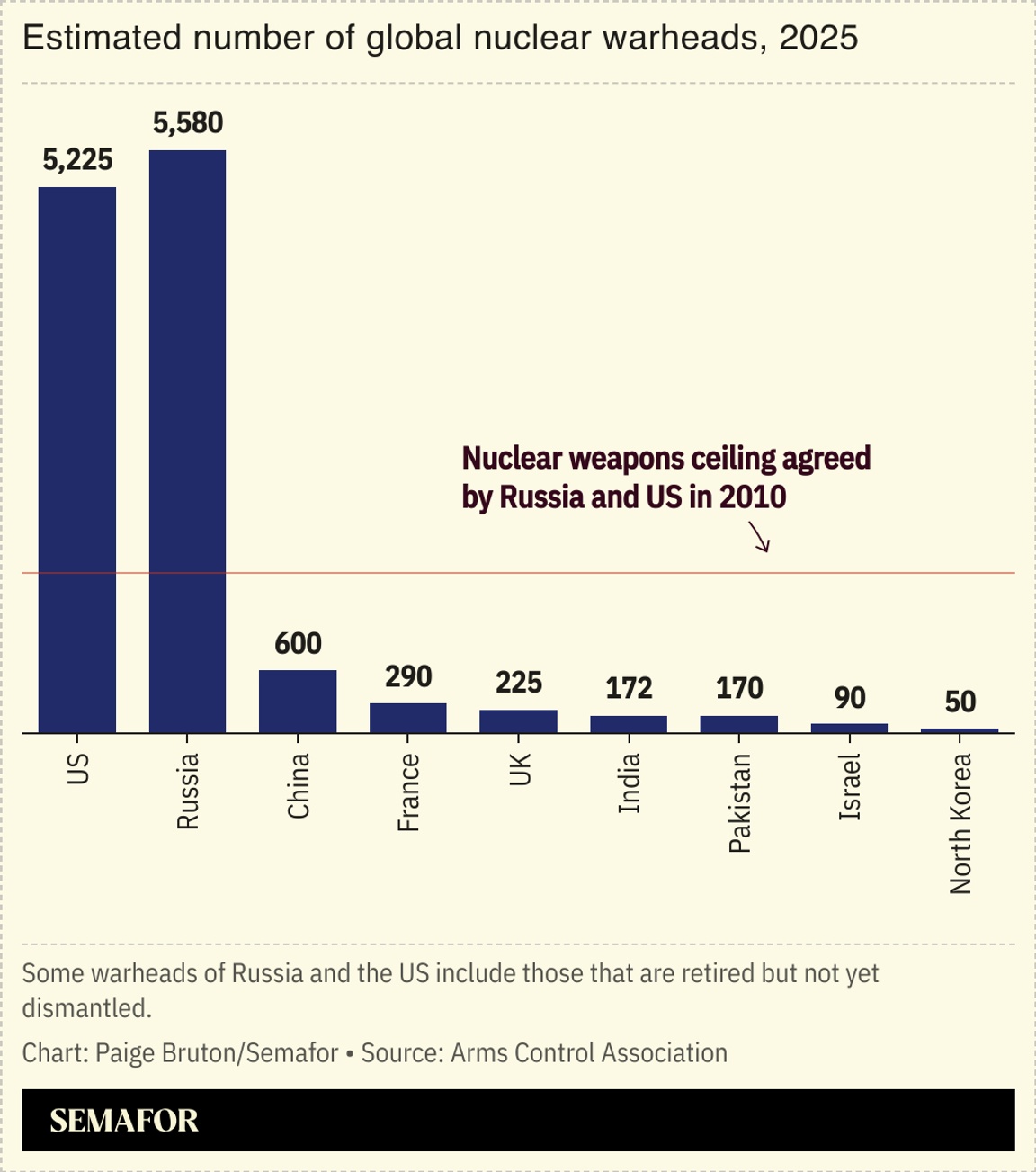 Russian President Vladimir Putin told officials to prepare for a possible restart of nuclear weapons tests, following US President Donald Trump’s unexpected announcement that the US would do the same. Trump’s declaration last week sparked confusion, because it was not clear whether he meant an end to the 33-year moratorium on warhead tests, or a test of some sort of missile, although he appeared on Friday to confirm the former. In an apparently choreographed meeting of the Russian security council, officials said testing could begin “within a short timeframe,” although they noted that Trump’s exact meaning was unclear. Moscow recently tested two long-range nuclear-powered delivery systems, and the US has accused it of conducting secret warhead tests despite the bans. |
|
US military turns to nuclear power |
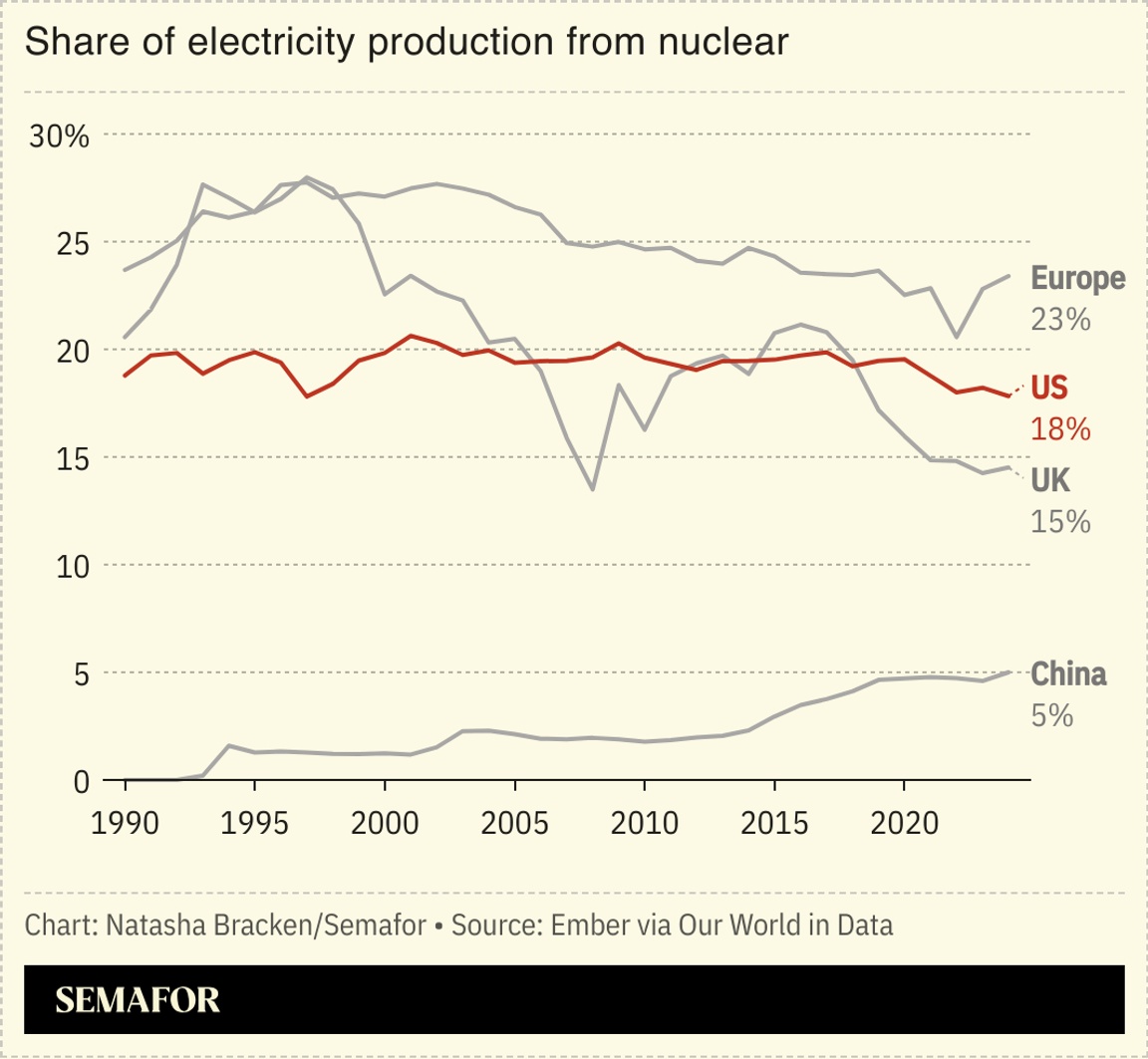 The US military will power bases using small nuclear reactors by 2028 in a bid to boost reliable electricity. The Janus Program aims to deploy microreactors, capable of generating enough electricity to power a small town but small enough to transport by aircraft. The reactors will keep operations running even in areas with poor grid connections, or when other energy sources go down because of bad weather or hostile activity, the Army said. The decision is part of a wider Trump administration push to boost nuclear energy. Military equipment is increasingly electrical, and even in the US the grid is not always reliable: Bases in Texas and California have lost power in snowstorms, The Wall Street Journal noted. |
|
Eurostar could lose Channel monopoly |
 Isabel Infantes/Reuters Isabel Infantes/ReutersA 30-year monopoly on the use of the Channel Tunnel might soon be broken. Since the undersea tunnel between England and France opened in 1994, only one operator, Eurostar, has run passenger services. But a British regulator permitted Virgin Trains, owned by billionaire Richard Branson, to use a vital rail depot, seen as a precursor to allowing it to run trains through the tunnel; the company plans to do so by 2030, although hurdles remain. The passage opened up UK-Europe travel, allowing travelers to reach Paris from London in just two and a half hours, and about 11 million people use Eurostar annually. Several groups want to run services if the monopoly is broken, including the Italian state rail company. |
|
 What if the world’s most iconic hippie van was originally made for Hitler? Did the electric chair and Thomas Edison have more in common than you think? Business History, a new show from the former hosts of Planet Money, uncovers the brilliant and sometimes bizarre stories about history’s greatest innovations, entrepreneurs, and mavericks. Learn why some company stocks soar, while other business ideas crash, and what the businesses of the past can teach us about commerce today. Listen to Business History here. |
|
China plans flying taxi service |
 Benoit Tessier/Reuters Benoit Tessier/ReutersChina’s leading flying taxi company plans to launch services from airports to local cities within three years. EHang became the first company in the world to obtain approval for pilotless people-c |
|
|